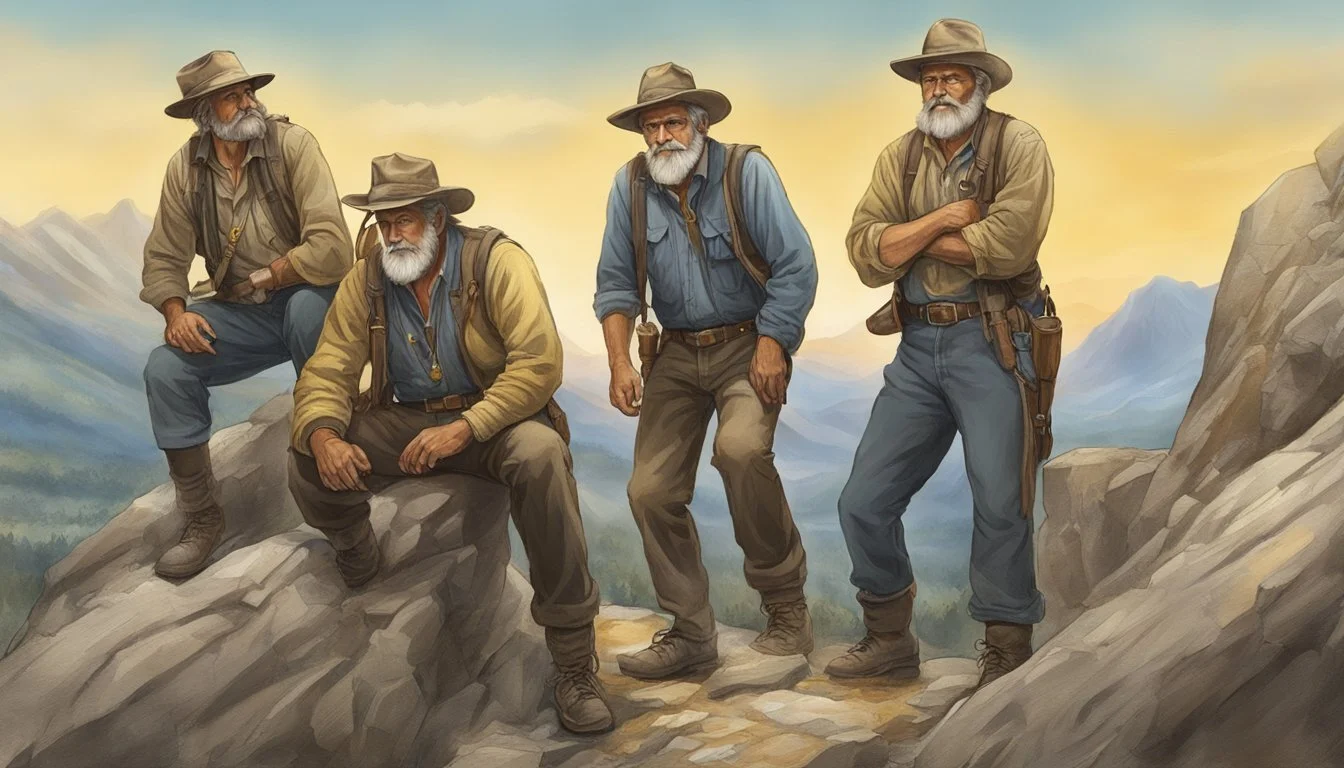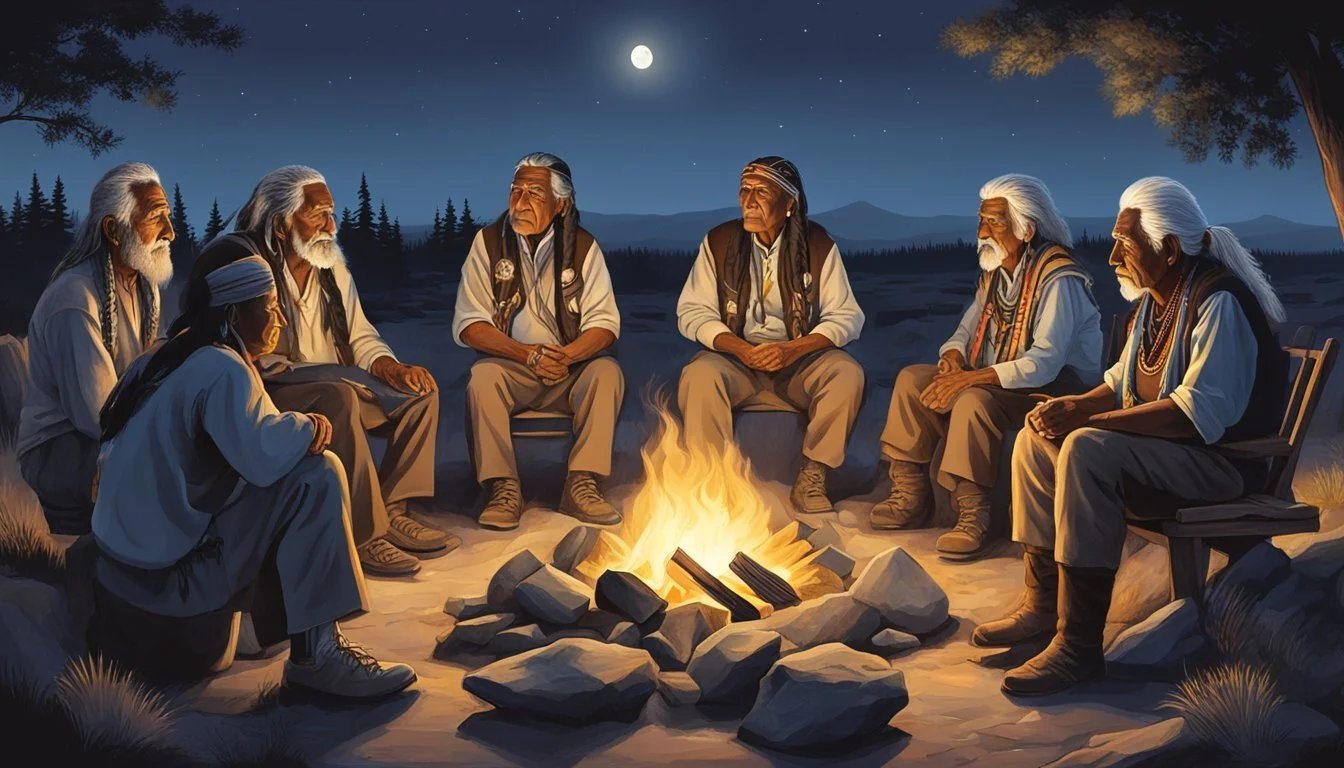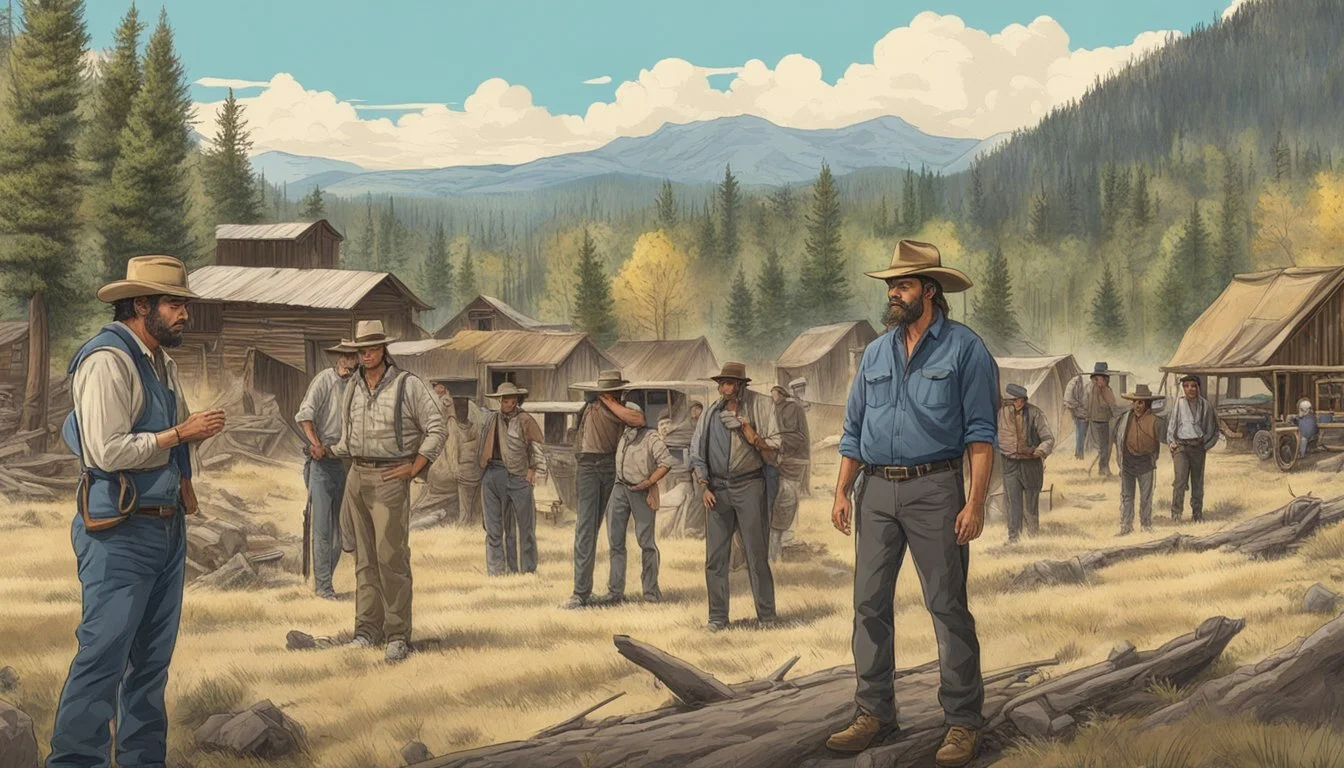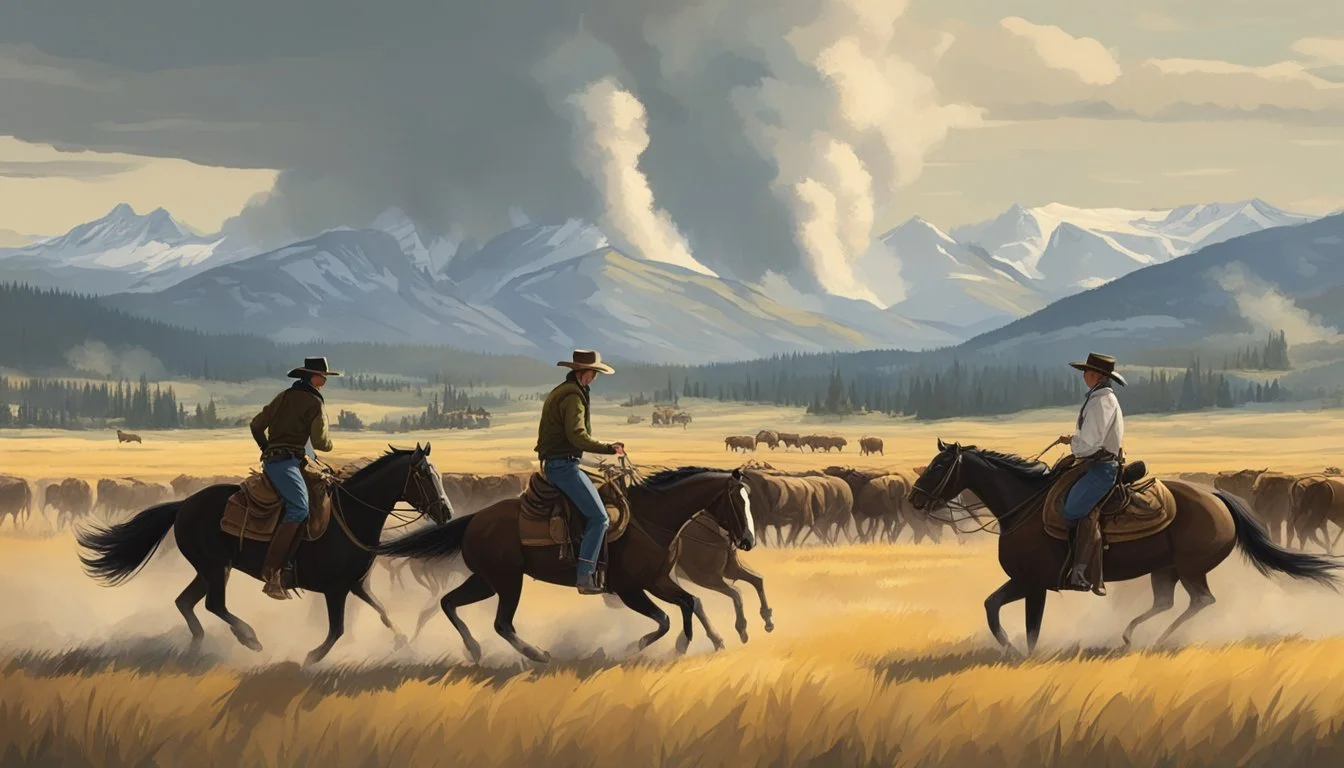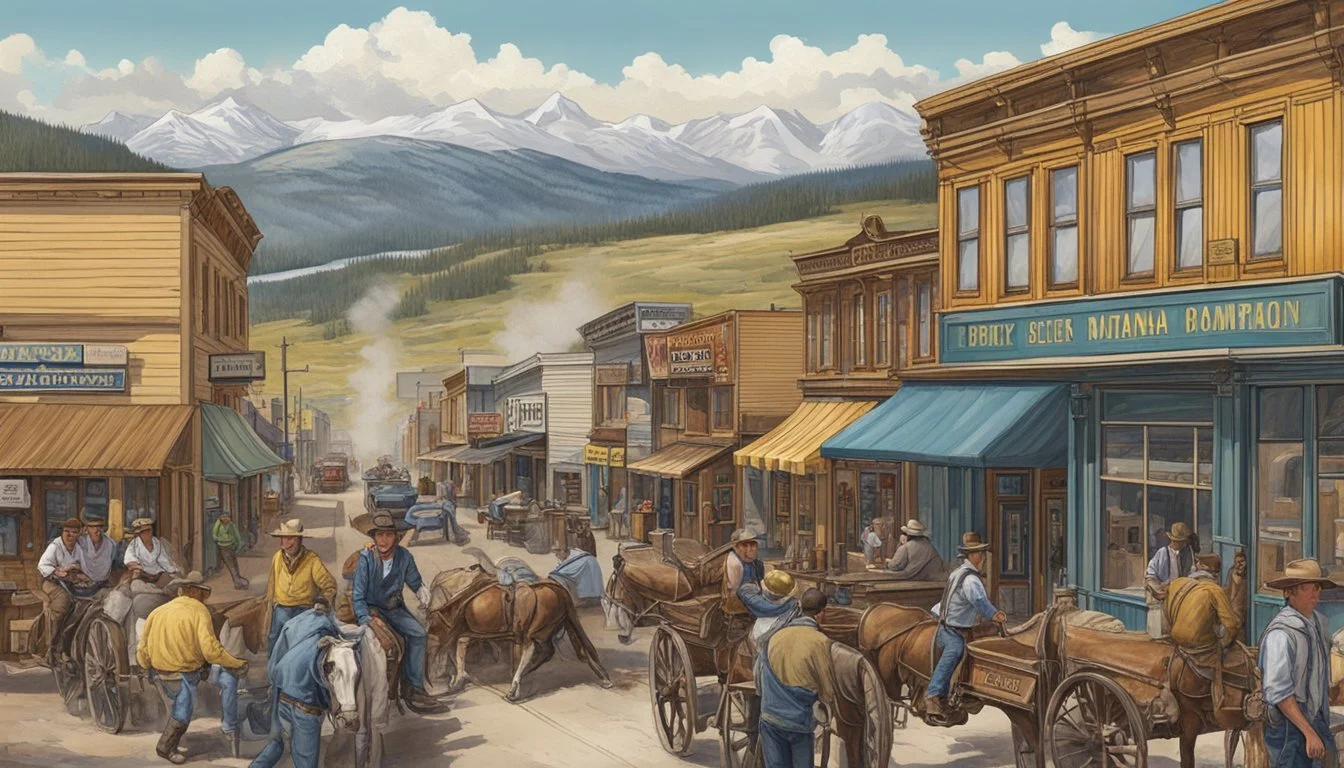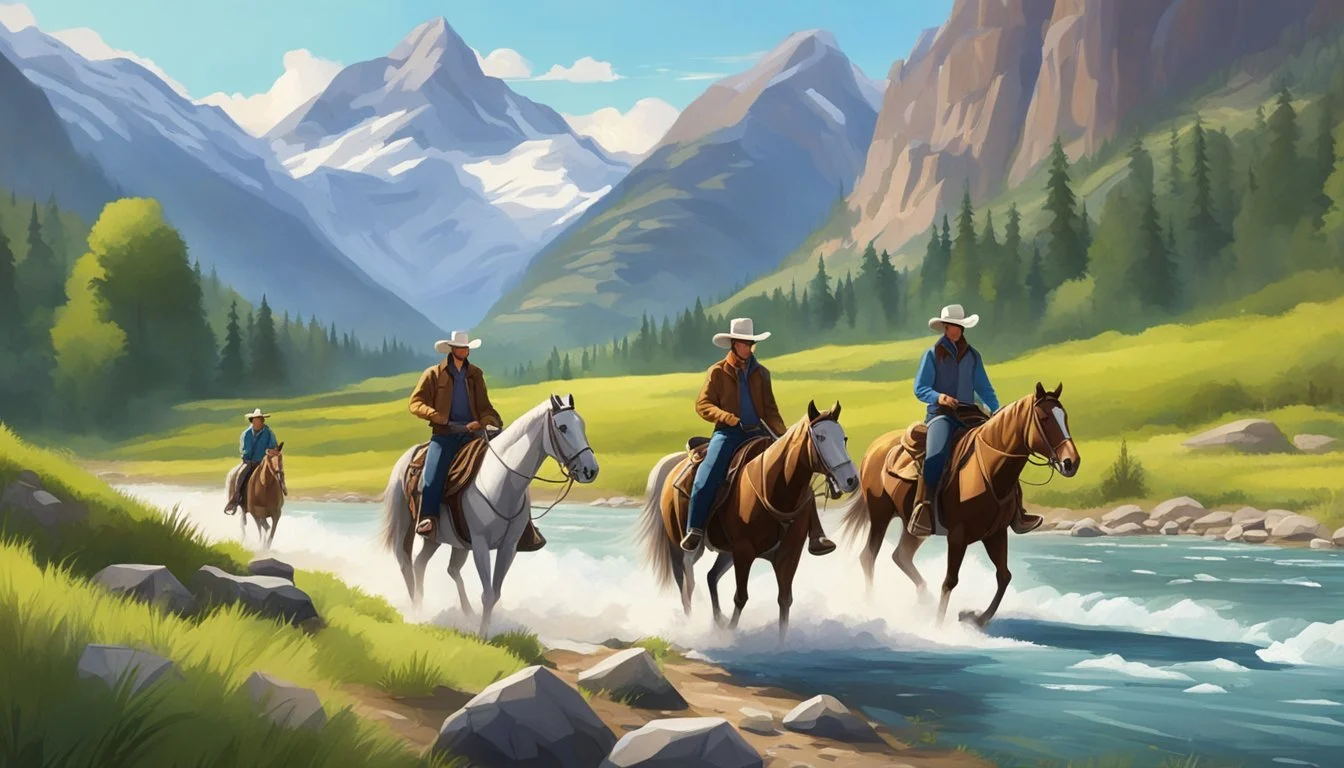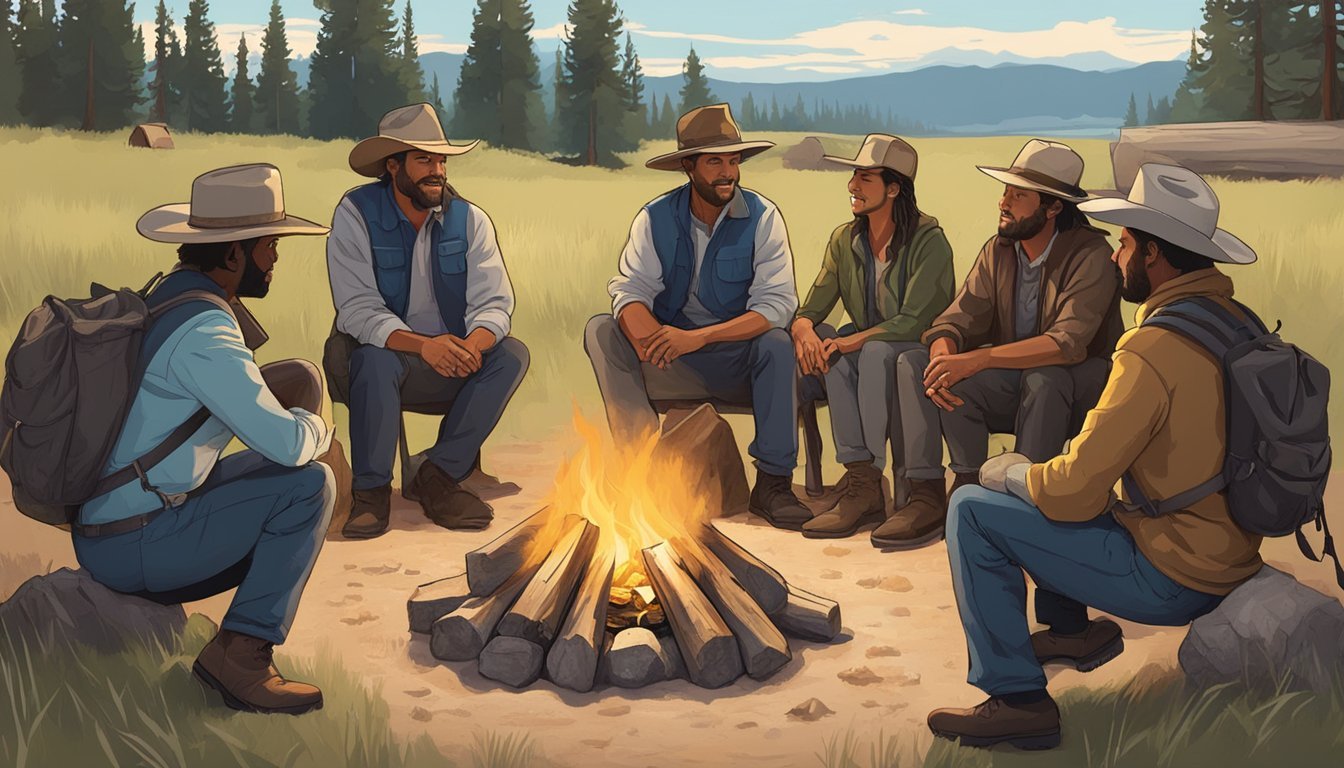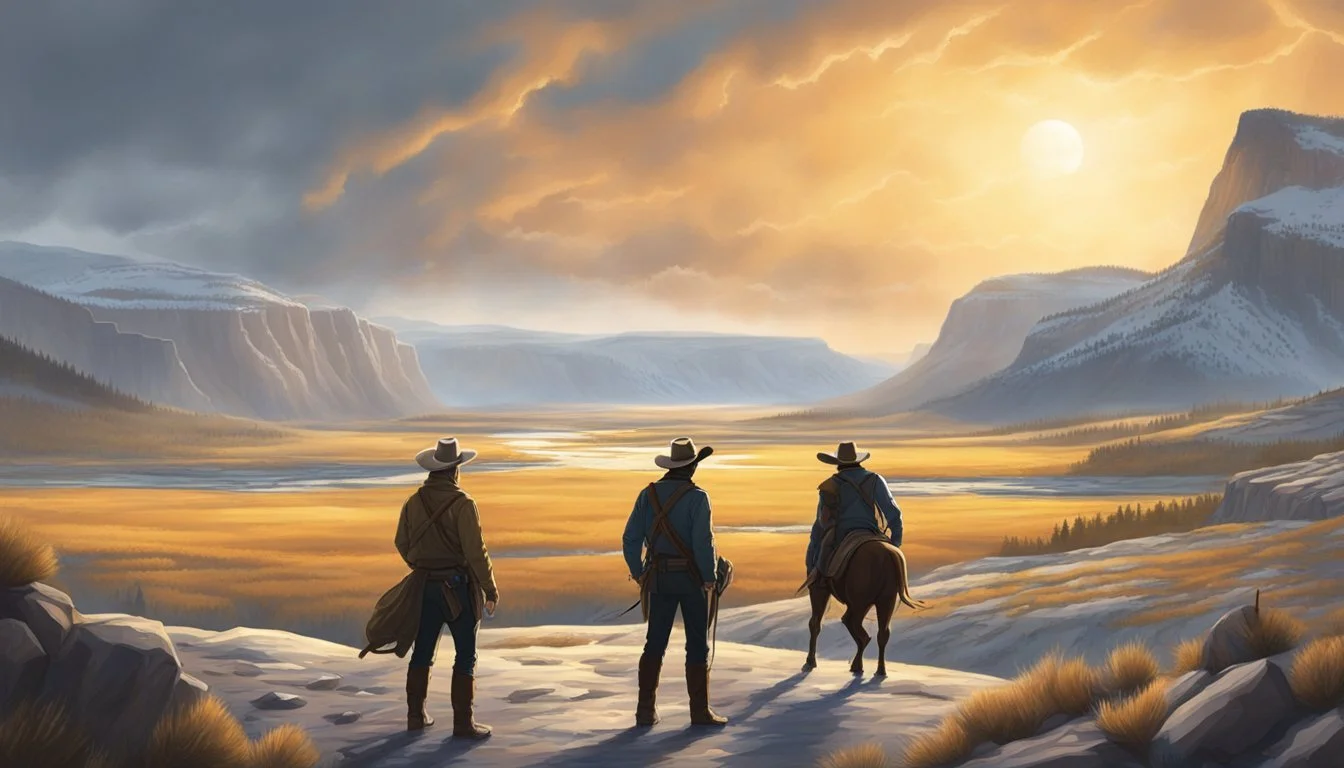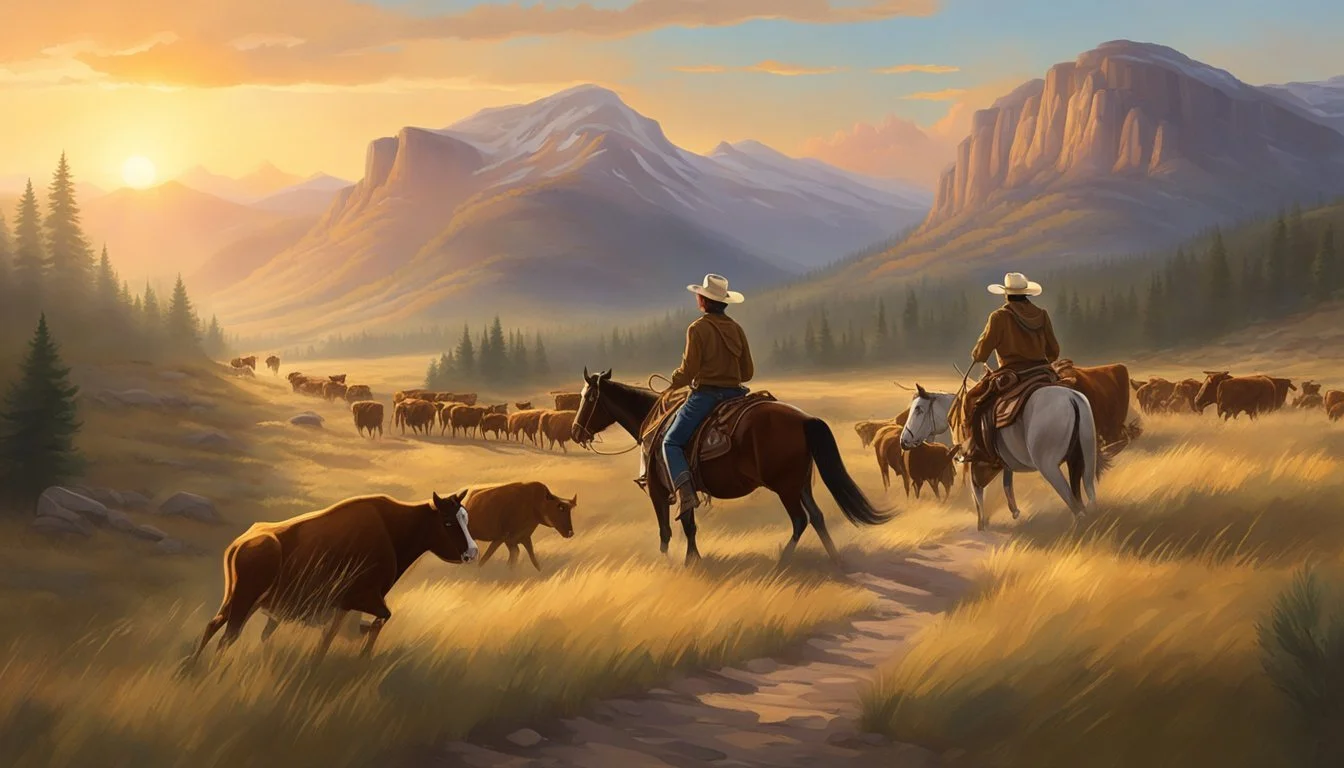Gold Fever Hits Yellowstone's Broken Rock Reservation as Power Shifts Loom
The fictional Broken Rock Reservation in the hit TV series Yellowstone has captivated audiences with its complex relationships and power struggles. But what if this Native American community suddenly struck gold on their land? Such a discovery would dramatically alter the dynamics between the reservation and the surrounding stakeholders.
A gold strike on Broken Rock Reservation would likely lead to increased economic opportunities for its residents while intensifying conflicts with neighboring interests. The Dutton family, already embroiled in land disputes with the tribe, would face new challenges as the reservation's newfound wealth shifted the balance of power. Chief Thomas Rainwater and his people might gain leverage in their ongoing efforts to reclaim ancestral lands.
This hypothetical scenario raises intriguing questions about resource management, tribal sovereignty, and the potential for both cooperation and conflict in the Yellowstone universe. As viewers have seen, the show's creators excel at weaving complex narratives around land, power, and heritage - themes that would only be amplified by a major gold discovery on reservation land.
Historical Background of Broken Rock Reservation
The Broken Rock Reservation has a complex history shaped by early settlement, treaties, and economic challenges. Its story reflects the broader experiences of many Native American communities.
Early Settlement and Treaty History
The Broken Rock Reservation was established through a series of treaties in the late 19th century. Native tribes, who had inhabited the land for generations, were forced to cede vast territories to the U.S. government.
The reservation boundaries were drawn with little regard for traditional tribal lands or resources. This resulted in the displacement of many families and the disruption of longstanding cultural practices.
Initial agreements promised federal support and protection. However, these commitments were often unfulfilled or inadequately implemented.
Economic Challenges Faced by the Reservation
Broken Rock Reservation struggled with limited economic opportunities from its inception. The land allocated was often of poor quality for agriculture or other traditional livelihoods.
Lack of infrastructure and isolation from major markets hindered development. Many residents faced unemployment and poverty as a result.
Natural resources on the reservation were frequently exploited by outside interests, with minimal benefits to the community. This pattern of economic marginalization persisted for decades.
Recent efforts to diversify the economy through tourism and small businesses have shown promise. However, overcoming historical disadvantages remains an ongoing challenge for Broken Rock.
Impact of Gold Discovery on Native Communities
The discovery of gold on the Broken Rock Reservation would bring significant changes to Native communities. This event would create new economic opportunities while also posing risks to traditional ways of life.
Potential Benefits and Opportunities
Gold discovery could provide much-needed economic stimulus for the Broken Rock Reservation. The influx of wealth might fund improved infrastructure, healthcare, and education facilities. Native-owned businesses could emerge to support mining operations and related industries.
Job opportunities in mining, construction, and services would likely increase. This could help address unemployment issues on the reservation. The tribal government might negotiate royalties or profit-sharing agreements, generating revenue for community programs.
Increased economic activity could attract outside investment and development. This might lead to modernization of reservation facilities and services. However, the community would need to carefully manage growth to ensure it aligns with tribal values and goals.
Challenges and Threats to Cultural Integrity
The gold rush could bring an influx of outsiders to Broken Rock, potentially disrupting community dynamics. This sudden population increase might strain local resources and services. Cultural clashes could arise between newcomers and long-time residents.
Environmental concerns would be significant. Mining operations could damage sacred sites and traditional hunting or gathering grounds. Water sources might face pollution risks, impacting both human health and ecosystems.
Rapid economic changes could erode traditional values and practices. Young people might abandon cultural pursuits for mining-related jobs. The focus on material wealth could conflict with spiritual and communal aspects of Native culture.
Land rights issues could intensify. Outside interests might pressure the tribe to sell or lease more territory. Chief Rainwater and tribal leaders would face challenges in protecting sovereignty and managing external influences.
Influence on Local Ranching and Agriculture
The discovery of gold on the Broken Rock Reservation would significantly impact neighboring ranches and agricultural operations. Traditional practices would face disruption as the economic landscape shifts.
Adjustments in Ranch Operations
Ranch owners near the reservation would need to adapt quickly. Rising land values could tempt some to sell portions of their property. Others might lease land for mining-related activities.
Labor shortages could emerge as workers flock to higher-paying mining jobs. Ranches would likely raise wages to retain skilled hands. Some might invest in automation to reduce labor needs.
Water rights disputes could intensify. Mining operations require substantial water, potentially competing with ranches' irrigation needs. Legal battles over water access might ensue.
Implications for Cattle Farming and Economy
The local cattle industry would face challenges and opportunities. Feed costs could rise due to increased competition for agricultural land. This would squeeze profit margins for ranchers.
However, the influx of mining workers and wealth could boost local beef demand. Savvy ranchers might pivot to supply high-end restaurants catering to the new population.
The economic focus would likely shift away from agriculture. Some ranching families might diversify into mining-related businesses. Others could transform parts of their land into housing developments to meet growing demand.
Environmental concerns could impact grazing practices. Increased scrutiny on land use might lead to stricter regulations for cattle operations near mining sites.
Revisiting 'Yellowstone' - The Series
The discovery of gold on the Broken Rock Reservation would dramatically alter the dynamics of 'Yellowstone'. This development would reshape relationships, power structures, and the core conflicts that drive the neo-Western drama.
Narrative Influence of Gold Discovery
A gold strike on Broken Rock land would intensify the existing tensions between the reservation and the Dutton Ranch. The newfound wealth could empower Thomas Rainwater and the tribe to challenge John Dutton's influence more effectively. This shift would likely force the Duttons to reevaluate their strategies and alliances.
The gold discovery might attract outside interests, introducing new antagonists to the series. Corporate entities and opportunistic individuals could descend upon the area, further complicating the political and economic landscape.
Taylor Sheridan, the show's creator, could use this plot twist to explore themes of resource exploitation and indigenous rights more deeply. The narrative could delve into the complexities of managing sudden wealth and its impact on tribal traditions.
Character Development and Plot Twists
A gold strike would significantly impact character arcs and relationships. John Dutton might find his power and influence waning as the Broken Rock Reservation gains financial strength. This shift could lead to intriguing alliances or deeper rivalries.
Kayce Dutton's divided loyalties between his family and his wife's Native American heritage would face new challenges. Beth Dutton's business acumen might be put to the test as she navigates the changing economic landscape.
Jamie's legal expertise could become crucial in dealing with new regulations and disputes arising from the gold discovery. Rip's role might evolve as the ranch faces different threats and opportunities.
The gold strike could introduce moral dilemmas for characters like Monica, torn between tribal prosperity and environmental concerns. New characters might emerge as key players in the gold rush, adding fresh dynamics to the Paramount Network's hit series.
Economic Implications for the State of Montana
The discovery of gold on the fictional Broken Rock Reservation would have significant economic ramifications for Montana. State revenue could increase substantially through taxes on mining operations and related businesses.
New job opportunities would emerge in the mining sector, potentially reducing unemployment rates. Support industries like equipment suppliers and transportation services would also see growth.
Montana's economic landscape might shift, with mining becoming a more prominent sector alongside agriculture and tourism. This could lead to a more diversified economy, potentially providing greater stability.
Tourism could experience both positive and negative effects. The gold rush might attract visitors interested in witnessing the phenomenon, boosting local hospitality businesses.
However, increased industrial activity could impact Montana's natural beauty, potentially deterring some nature-focused tourists. State policymakers would need to balance economic development with environmental preservation.
Infrastructure improvements would likely be necessary to support the mining boom. This could include upgrades to roads, power grids, and water systems, benefiting communities beyond the reservation.
The influx of wealth and workers could drive up housing costs and strain local services. Montana officials would need to address these challenges to ensure sustainable growth.
Environmental and Ecological Concerns
The discovery of gold on Broken Rock Reservation would raise significant environmental and ecological concerns. Mining operations could disrupt the delicate balance of the ecosystem and impact wildlife habitats.
Assessment of Environmental Impact
Gold mining on the reservation would require a thorough environmental impact assessment. This process would evaluate potential effects on air and water quality, soil erosion, and biodiversity.
Experts would study the impact on local wildlife populations and their migration patterns. The assessment would also consider noise pollution from mining equipment and increased vehicle traffic.
Water resources would be a primary concern. Mining operations often require large amounts of water, potentially affecting local streams and aquifers. There would be risks of contamination from chemicals used in gold extraction processes.
Sustainable Practices and Stewardship
Implementing sustainable mining practices would be crucial for minimizing environmental damage. The Broken Rock tribe could adopt advanced technologies to reduce water usage and limit chemical pollution.
Reclamation plans would need to be developed to restore mined areas after extraction. This could include replanting native vegetation and reconstructing natural landforms.
The tribe might establish a dedicated environmental stewardship program. This could involve regular monitoring of air and water quality, as well as wildlife populations.
Partnering with environmental organizations could provide expertise in sustainable mining techniques. Such collaborations might also help in developing long-term conservation strategies for the reservation's natural resources.
Legal and Sovereign Rights Issues
The discovery of gold on the Broken Rock Indian Reservation would raise complex legal and sovereign rights questions. Treaty obligations, tribal sovereignty, and potential negotiations with federal and state governments would become key focal points.
Treaty Obligations and Sovereignty
The Broken Rock tribe's sovereign rights would be at the forefront of any gold discovery discussions. Historical treaties between the tribe and the U.S. government would play a crucial role in determining resource ownership and extraction rights.
Tribal leaders would likely assert their authority over reservation lands and resources. This could include the right to approve or deny mining operations and to set environmental protection standards.
Federal laws like the Indian Mineral Development Act of 1982 provide tribes with more control over mineral resources. However, interpretations of these laws can vary, potentially leading to legal challenges.
Negotiations and Legal Precedents
Past legal cases involving tribal mineral rights would inform negotiations between Broken Rock and government entities. The tribe might seek to leverage precedents that have favored tribal sovereignty in resource management.
Negotiations could focus on revenue sharing, environmental safeguards, and employment opportunities for tribal members. The tribe might push for a greater share of profits compared to typical arrangements on non-tribal lands.
Legal experts specializing in Indian law would likely be consulted by both sides. Their insights on relevant court decisions and federal policies would shape negotiation strategies.
State governments might also seek involvement, potentially complicating talks. However, federal law generally limits state authority over tribal affairs, especially regarding natural resources on reservations.
Cultural and Educational Initiatives
The discovery of gold on the Broken Rock Reservation would spark new cultural and educational programs. These initiatives aim to preserve traditions while preparing tribal members for economic changes.
Establishing Cultural Awareness Programs
The tribe launches cultural awareness programs to educate both members and outsiders about Broken Rock heritage. These include language revitalization efforts, focusing on preserving the tribe's native tongue through classes and immersion programs.
Traditional craft workshops teach beadwork, pottery, and weaving techniques. The tribe also organizes pow wows and cultural festivals, inviting visitors to experience Broken Rock customs firsthand.
A cultural exchange program pairs tribal elders with youth, ensuring the passing down of oral histories and traditional knowledge. This intergenerational learning helps maintain the tribe's identity amid newfound wealth.
Development of an Educational Center
The tribe invests in a state-of-the-art educational center on the reservation. This facility offers courses ranging from basic education to specialized training in fields related to mining and resource management.
The center partners with nearby universities to provide higher education opportunities. Scholarship programs are established to support Broken Rock students pursuing degrees in geology, environmental science, and business management.
Vocational training programs teach skills directly applicable to the new mining operations. These courses cover heavy equipment operation, mineral processing, and mine safety protocols.
The educational center also houses a museum showcasing Broken Rock history and artifacts. This space serves as a resource for both tribal members and visitors, promoting understanding of the tribe's past and present.
The Future of 'Yellowstone's' Fictional Universe
The 'Yellowstone' franchise continues to evolve, with new storylines and spinoffs on the horizon. Existing narratives may also incorporate fresh elements to keep viewers engaged.
Potential for New Storylines and Spinoffs
A spinoff centered on the Broken Rock Reservation could explore the aftermath of striking gold. This development might shift power dynamics and create new conflicts with the Yellowstone Ranch. The series could delve into the economic and social impacts on the reservation community.
Another potential storyline could focus on Sarah Atwood's character, exploring her background and motivations. This spinoff might reveal her connections to other key players in the 'Yellowstone' universe.
Viewer engagement could increase with these new narratives, as they offer fresh perspectives on familiar characters and settings.
Incorporation into Existing Narratives
The discovery of gold on the Broken Rock Reservation could be woven into ongoing 'Yellowstone' storylines. This plot point might create tension between the Duttons and the reservation, altering their long-standing relationship.
Existing characters could face new challenges as they navigate the changing landscape. The Yellowstone Ranch might need to adapt its operations in response to the reservation's newfound wealth.
These developments could provide opportunities for more accurate representation of Native American communities in American cinema. The series could explore the complexities of modern tribal politics and economic development.
Media Representation and Public Perception
The discovery of gold on Yellowstone's fictional Broken Rock Reservation would likely spark intense media coverage. News outlets would descend on the area, eager to report on the economic implications and potential conflicts.
Public opinion would be divided. Some might view it as a positive development for the tribe's economic prospects. Others could worry about environmental impacts or increased tensions with neighboring communities.
Native American representation in media coverage would be crucial. Accurate portrayals of tribal decision-making processes and cultural perspectives would be essential for balanced reporting.
Mo Brings Plenty, who portrays Mo on the show, might see increased attention as a Native American actor in a high-profile series. His perspective could be sought after by journalists covering the hypothetical gold discovery.
The event would challenge existing stereotypes about Native American communities. It could prompt discussions about sovereignty, resource management, and economic development on reservations.
Media narratives would likely focus on:
Potential wealth creation for the tribe
Environmental concerns
Legal disputes over mining rights
Cultural preservation amid rapid change
Responsible reporting would require journalists to consult tribal leaders, environmental experts, and legal authorities to provide comprehensive coverage.

